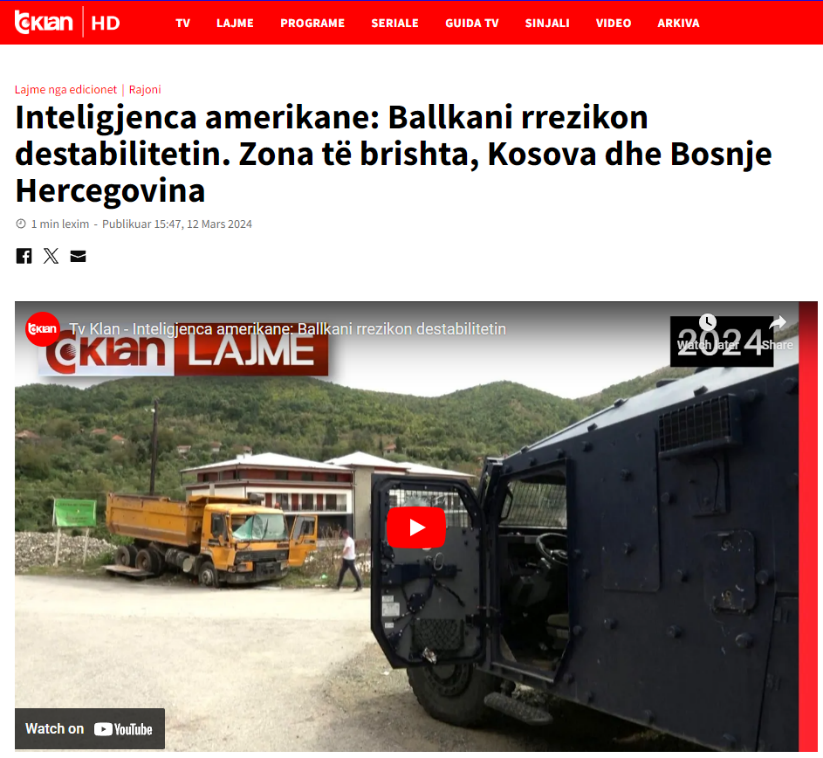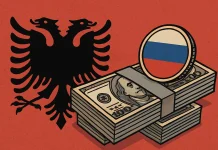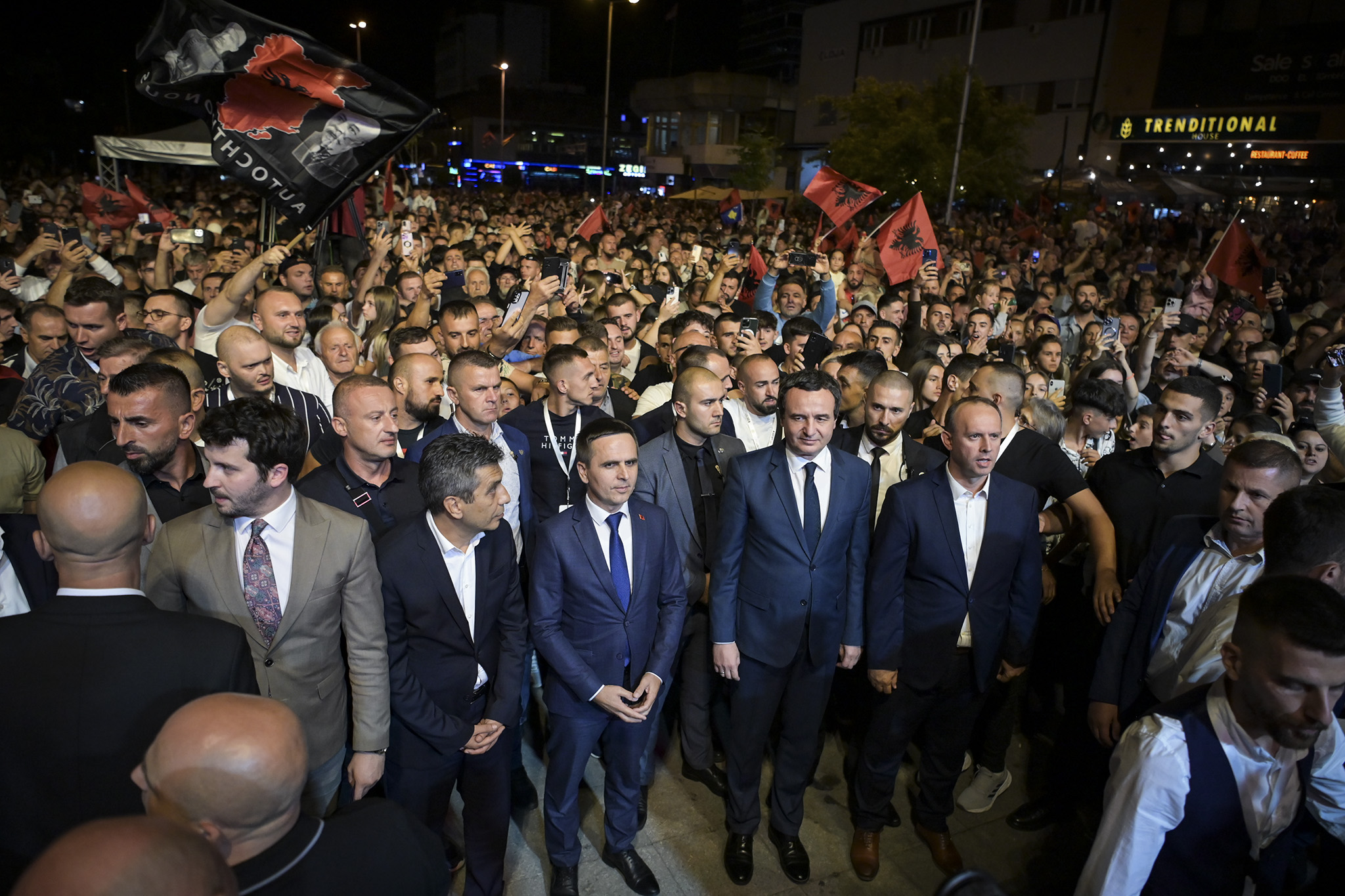Alarm of a potential war in the Balkans are sporadically circulated in Albanian media, often embellishing facts and data. This narrative once again evokes the specter of conflict, citing a report from the American Intelligence. In contrast to media assertions, the report forewarns of localized ethnic violence, a tangible risk in the region but unlikely to escalate into a full-scale war according to experts. Sensationalized headlines or news articles with a war narrative aim to generate clicks by sowing panic among readers.
Jona Plumbi
‘Alert! American Intelligence: War in the Balkans? Expert: “A Greater Serbia is being aimed for‘
This was announced by Albania’s state broadcaster, RTSH, on March 15, citing a report from the American Intelligence that they claimed predicted a possible war in the Balkans.


American Intelligence anticipates that Western Balkans will face an increased risk of localized interethnic violence during 2024‘ reported RTSH, which hosted a 30-minute studio discussion on the topic.
The subject discussed by Radio Televizioni Shqiptar revolves around a report from the ODNI, the Office of the Director of National Intelligence.
This report forecasts that during 2024, the Western Balkans region may see an increased risk of localized ethnic violence.
‘Western Balkans will face an increased risk of localized interethnic violence during 2025. Nationalist leaders are likely to escalate tensions for their political gain, while external actors will bolster and exploit ethnic divisions to advance or safeguard their regional influence, or to hinder the greater integration of the Balkans into EU or Euro-Atlantic institutions.‘ – ODNI Report for 2024.
The report mentions examples of these localized ethnic clashes, such as the situation in Banjska during 2023 and Milorad Dodik’s provocations in Bosnia aimed at the secession of Republika Srpska.
However, at no point does the report suggest the Balkans being embroiled in war or even two states in the region being in conflict with each other, contrary to the implications made by the state broadcaster RTSH.
The news of ‘instability in the Balkans’ was reported by several major media outlets in the country.

Another news stated that Washington’s report warns that the Western Balkans ‘risks being destabilized by conflicts fueled by countries with interests in controlling the region, such as Russia.’
The article continues to distort the report
‘Western Balkans will face an increased risk of localized interethnic violence during 2024.‘- the article states, noticeably omitting the word ‘localized’ in the prediction of a potential increase in ethnic tensions.

*facsimile of misquotation of ODNI media report
Ledion Kristafi, an international relations scholar, tells Faktoje that while the risk of localized conflicts in the region exists, as evidenced by the Banjska incident, the idea of a war in the Balkans is entirely implausible.
‘I don’t see the possibility of a war in the Balkans. While the risk of localized conflicts in the region does exist, it should not be overstated because today, the region is not the same as it was 20 or 30 years ago. NATO’s presence in the region is much stronger, especially in Kosovo, is crucial for its security. We are no longer in the 90s. The Serbs, who were the instigators of wars back then, have learned from their mistakes,‘ stated Ledion Kristafi, an expert in international relations.
Kristafi argues that NATO’s presence serves as a deterrent, a red line that the Serbs are neither willing nor prepared to cross.
‘In the current situation, the theoretical risk is present, but the likelihood of it materializing from the Serbs is difficult to imagine because Serbia and the Serbs in the Balkans would face consequences and sanctions, they wouldn’t be able to handle.’ Kristafi explained.
In November 2023, after Ukrainian President Volodymyr Zelensky issued a warning about increased attention to the Balkans due to Russian interference in the region, NATO Secretary General Jens Stoltenberg also emphasized that ‘he did not see any imminent military threat against any of its allies’.
According to the Researcher Kristafi, the outcome of the war in Ukraine will be a decisive factor for the region’s future.
‘A potential victory for Russia in Ukraine would weaken the EU and embolden the Serbs, particularly in Bosnia and Herzegovina, to take action. However, Bosnia is a dysfunctional state, and both the EU and the US, regardless of Russia’s victory or defeat, should find a definitive solution for Bosnia’, Kristafi assesses.
The use of sensational headlines or the misinterpretation of reports or statements to ‘warn’ of impending wars is a recurring trend in the media, including Albanian media. Often, Faktoje has debunked such headlines as ‘clickbait’ that spread fear rather than providing accurate information to readers.
Keqinformimi me deklaratën e Dodik përhap tituj për “luftë të re”









